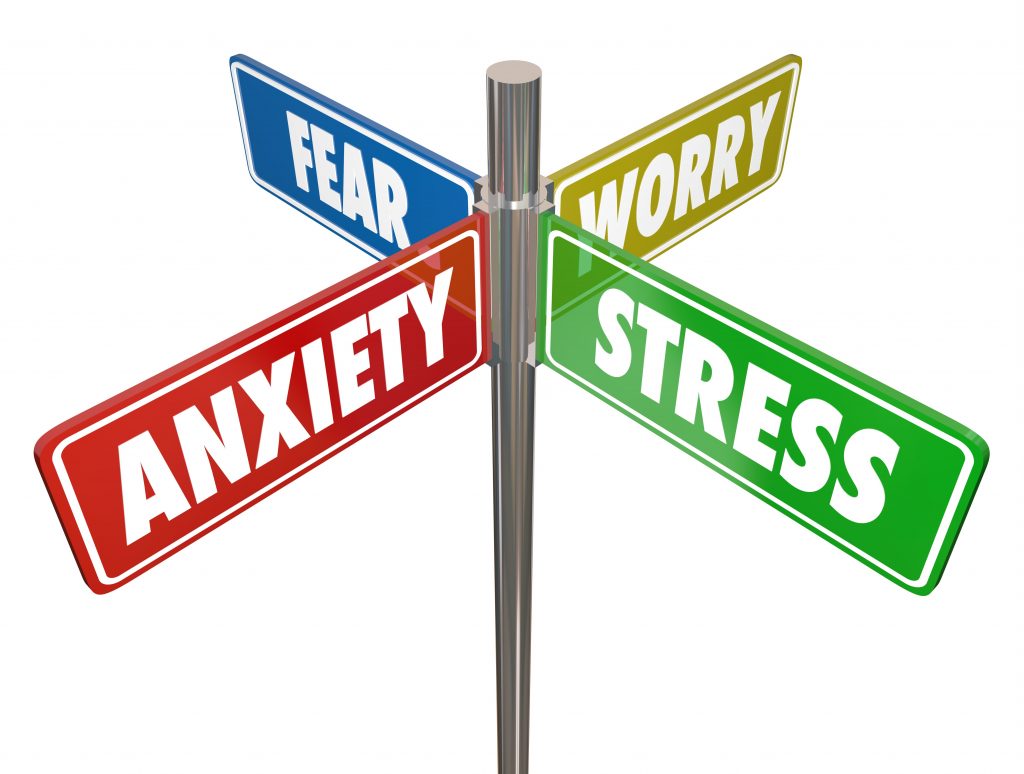Worry is a part of everyone’s daily life. Anxiety, in some form, may also be part of one’s life. What is the difference between anxiety and worry, and how can you tell the difference?
Anxiety is a sense of impending danger and threat which produces effects in several body systems. It produces biochemical changes in a person’s body and is often generated by circumstances or situations related to the person’s memory and history. Its effects are experienced for a period of time.
Worry is a condition usually experienced in the short term in regard to some outcome that one fears or expects from a current situation and circumstance.
Short-Term:
Worry comes and goes, but anxiety, for many people, becomes a sense of fear and foreboding that lasts over a long period of time, six months or more. Worry, because it is most often focused on some event or situation in the near future, in a sense, takes care of itself when the situation or event passes and its effects were either as expected or not as experienced. In any case, when the event or situation passes, the worry about it also passes.
Long-Term:
Anxiety, on the other hand, is a long-term condition. It is usually not focused on a specific event or situation. In fact, that is one of the problems with anxiety: it tends to be unfocused. It is a feeling that something may happen, something not clearly identified, something negative and maybe even dangerous. While worrying us usually compartmentalized, focused on one event or situation, anxiety is not. Anxiety is a general feeling of unease and negative expectation. Usually, if one were to ask someone suffering from anxiety what it is that they are anxious about, after thinking about it for a while, they might say something like, “Well, I’m not sure exactly what it is, but I definitely have the feeling that something bad is going to happen.”
Indeterminate character:
Thus, a significant aspect of anxiety is its indeterminate character. It is a strong feeling of threat or danger, but not specifically focused on anything in particular. It may just be about “the future” or “things,” but not anything specifically identifiable. That, of course, is one of the problems with anxiety: if it is not focused on a specific situation or event, then there is nothing that cam completely dissipate the anxiety. The situation or event does not pass, but the sense of anxiety remains. Without having a focus, it doesn’t end. It just goes on…
Constantly in mind:
Being constantly in the back of the person’s mind, anxiety can affect a wide variety of things in the person’s life: how they think about things, how they feel, and how they react to other people, situations, or events.
Physical symptoms:
Further, as was pointed out, anxiety is a biochemical reaction in the body. That means that the symptoms of anxiety are not only mental and psychological, but they can also be physical, such as fatigue and getting tired easily, restlessness, irritability, muscle aches and pains, sweating, insomnia, nausea, and even diarrhea. Because of this physical aspect, anxiety complicates the life of the person suffering from it as the physical effects may cause discomfort, pain, problems in appearing in public places, and/or in personal relationships.
Unlike Fear:
Anxiety is much like fear, which also has a dual component of mental-psychological and physical effects. However, with fear, the focus is usually identified, but with anxiety, the focus of the general symptoms of fear are not focused on any particular event or situation. It exists without a focus.
Maybe Debilitating:
While some people may experience only mild anxiety which exists “in the back of their minds,” for other people, anxiety may be very debilitating, making the person fearful of many situations and circumstances because they have no idea as to what exactly is the focus of their anxiety.
Help for Anxiety is Available:
Anxiety is not a “terminal” disease. It can be treated through psychological intervention by a number of techniques. Important in some forms of treatment for anxiety is the determination of the source of the anxiety. The “source” and the focus of the anxiety are not that same things. The source of the anxiety may be something that happened at some point in the individual’s life. It is the cause of the general feeling of anxiety. The focus of anxiety is what the anxiety is about. Determining the cause of anxiety is a significant step towards the psychological treatment directed to the alleviation of the feelings of anxiety. Thus, psychological treatment seeks to defuse the causes of anxiety, and, in doing so, alleviate the feelings and symptoms of anxiety. Thus, treatment by a trained psychologist is a significant approach to dealing with anxiety.















